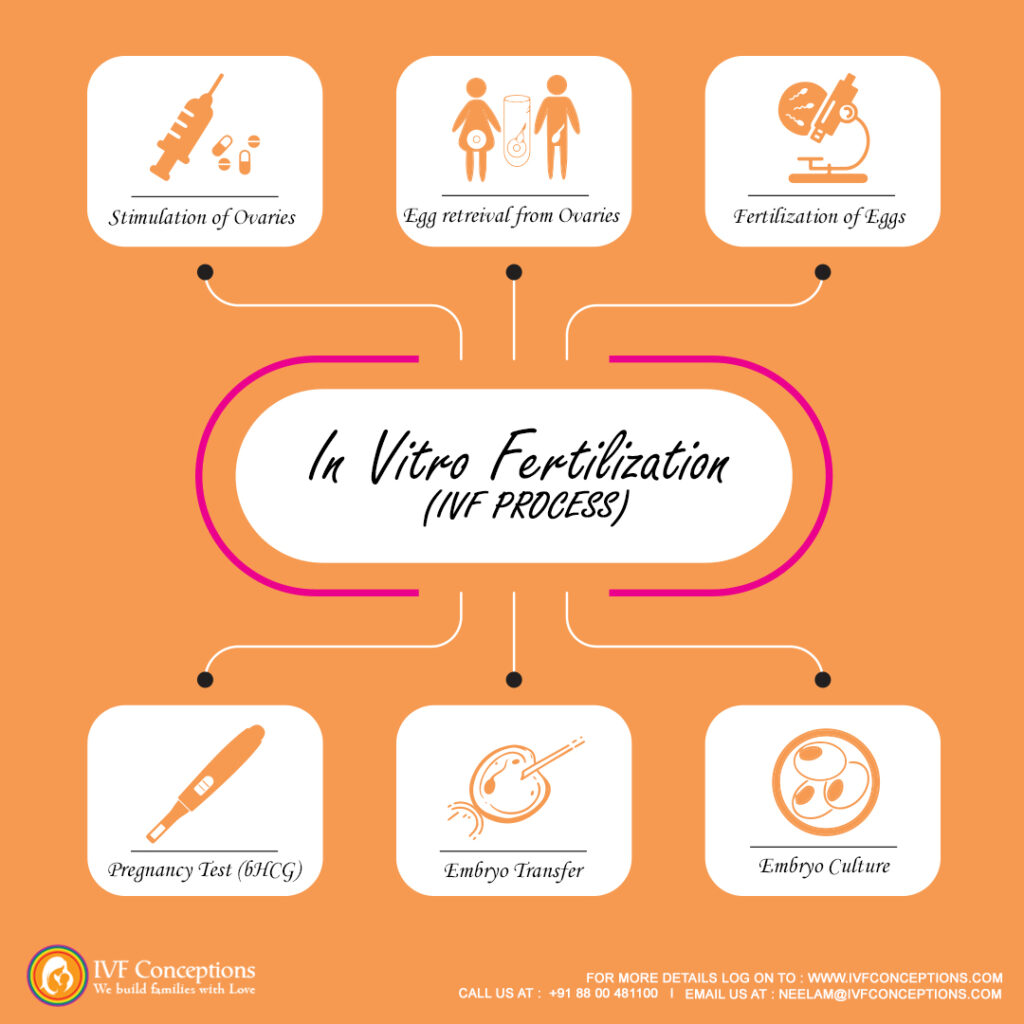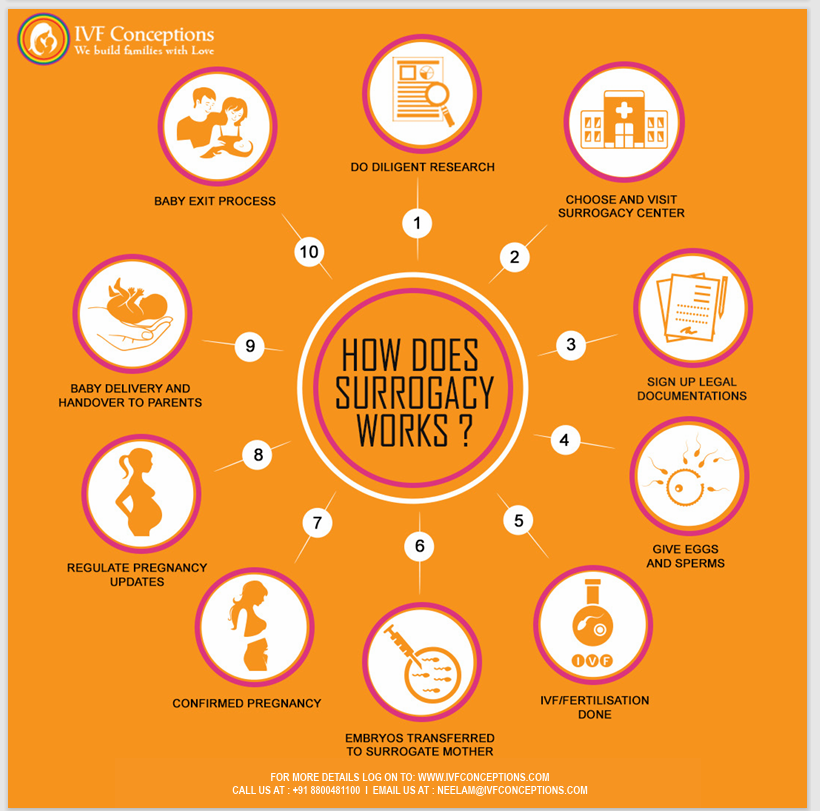What is Gestational Surrogacy- Comprehensive Guide

What is Gestational Surrogacy- A Comprehensive Guide to Parenthood Possibilities
When families face challenges in conceiving a baby, they may explore gestational surrogacy as a pathway to parenthood. What is Gestational Surrogacy? It is an arrangement where a woman, known as a gestational carrier, carries and delivers a baby for intended parents. This option is often chosen due to recurrent miscarriages, medical conditions that make pregnancy unsafe, or personal circumstances that prevent carrying a child. With advancements in reproductive technology, finding a trusted surrogacy agency in 2025 has become easier, offering intended parents a safe and ethical way to grow their families. Let’s explore how gestational surrogacy works and what intended parents need to know before beginning the process.
- Book an online appointment: Get a free online consultation.
- Call\W:+91-8800481100 Email:neelam@ivfconceptions.com
Embarking on the journey of assisted reproduction opens a world of possibilities, and two key players in this realm are In Vitro Fertilization (IVF) and Gestational Surrogacy. Let’s delve into the distinctive features that set them apart.
More Resources to Read:
How much does Surrogacy Cost
Surrogacy Guide for Surrogate Mothers
Surrogacy Guide for Intended Parents
How does the Gestational surrogacy process work

In Vitro Fertilization (IVF)
IVF is a technological marvel that brings hope to couples facing fertility challenges. Here’s a quick snapshot:
- Process: Eggs and sperm are combined outside the body in a laboratory dish, and the resulting embryos are then transferred into the uterus.
- Genetic Connection: The biological connection between parents and the child is maintained.
- Medical Intervention: Ideal for addressing issues like fallopian tube blockages, male infertility, or unexplained fertility problems.
Now, let’s switch gears and explore the captivating world of Gestational Surrogacy.
Gestational Surrogacy
Gestational Surrogacy is a beacon of light for those unable to carry a pregnancy. Here’s the lowdown:
- Process: A surrogate, not genetically related to the child, carries an embryo created from the intended parents’ egg and sperm.
- Genetic Connection: Intended parents maintain a genetic link to the child.
- Medical Intervention: A viable option for individuals or couples facing uterine issues, recurrent pregnancy loss, or medical conditions that make pregnancy risky.
Let’s break it down further with a side-by-side comparison:
| Criteria | IVF | Gestational Surrogacy |
| Genetic Connection | Biological connection to the child. | Genetic link maintained with the intended parents. |
| Carrier’s Genetic Link | N/A | No genetic link between the surrogate and the child. |
| Medical Indications | Various infertility factors. | Uterine issues, medical conditions, or other factors affecting pregnancy. |
| Emotional Dynamics | Direct involvement in pregnancy. | Relies on the surrogate for carrying the pregnancy. |
| Legal Aspects | Standard IVF legalities. | Requires legal agreements defining roles and responsibilities. |
| Carrier of Baby | The intended Mother carries the pregnancy | Intended Mother carries the pregnancy |
| Egg Donor | The intended Mother carries the pregnancy | A surrogate mother ( gestational carrier) carries the pregnancy |

So, let’s talk more about the surrogacy!
1 Who is a gestational carrier?
A gestational carrier, also known as a gestational surrogate, is an arrangement where a woman is carrying and delivering a child to another couple or individual known as the intended parent.
The eggs used to produce the embryos do not come from the carrier when using a gestational carrier. This technique requires the use of in vitro fertilization (IVF) because the embryos are extracted from one individual and inserted in another. IVF happens when eggs are fertilized in the lab and a limited number of resulting embryos are transferred to the carrier’s uterus. The eggs used belong to the intended mother or the egg donor while the sperm used to belong to the sperm donor or the intended father.
2. Who can consider gestational surrogacy?
- Same-Sex Couples – Gay couples especially men will use surrogacy by donating their sperm to have a child of their own. They take the help of the donated eggs to have a baby of their own. This practice is gaining popularity these days. It is important to work closely with the LGBTQ community to equip them well with the available options.
- Single people who want to be a parent – The biological clock doesn’t always tick a woman. There are times when a man is ready to become a dad and doesn’t want a relationship with a woman to make it happen. So, surrogacy is an important option for those who want to build their family on their own terms.
- Uterine problems – Some women have a problem with the uterus. Some might lack the organ as well. This can be a result of a rare genetic malformation that affects one in 12,000 women or due to some infection of a tumor she may have her uterus removed. The lack of a uterus destroys the chances for women to carry the child. Less severe than the lack of a uterus there might be some inherent condition or a uterine defect that makes the conception difficult or in some cases make it difficult for the child to carry it to the term.
- Unexplained infertility – Sometimes the patient has to go through 4 to 5 rounds of IVF and then also is unable to carry a child. In these cases where there is repeated failure of pregnancy women can opt for gestational surrogacy.
3. Difference between IVF and Surrogacy
In vitro fertilization (IVF) is a complex set of treatments used to help with pregnancy or to avoid genetic problems and to assist with the child’s conception. Mature eggs are extracted from ovaries during IVF and fertilized in a laboratory by sperm.
The fertilized egg (embryo) or eggs are then moved to a womb. It takes about three weeks to complete an IVF cycle. Such measures are sometimes divided into different sections and may take longer. When the resulting embryos are transferred to the female partner, it is just an IVF. But if the resulting embryos are transferred to a separate lady, known as a surrogate mother, this is known as the surrogacy process.
4. There are two types of surrogacy
- Traditional Surrogacy– In traditional surrogacy, women use their own eggs and the intended fathers or donor sperm inseminate them artificially. The surrogate mother is carrying the baby, delivering the baby, and then giving the parents the baby to raise. The traditional surrogate mother is the biological mother of the baby because the sperm of the intended father has fertilized her egg.
- Gestational Surrogacy – She is a woman carrying a baby born with the intended mother’s egg, or an egg donor, and the intended father’s sperm or sperm donor. A gestational surrogate mother has no genetic connection to the baby because the egg used during the IVF process was not of the gestational surrogate.
5. Time is taken in gestational surrogacy
It generally takes a lot of time to find the gestational carrier. To achieve a successful pregnancy, it takes up to 3 to 4 IVF cycles. The full surrogacy journey – from start to end takes 12 months to 18th months. Read – How long does surrogacy take in general?

6. Pros and Cons of Gestational Surrogacy
Gestational surrogacy has its own share of pros and cons –
Pros
- Completes Family – Surrogacy completes the family.
- Creates Relationships – Surrogacy creates relationships and caters to those relationships with love and nurture.
- Parents have a biological link with the child and show full involvement.
Cons
- It is a legally complex procedure so look out for an all-inclusive surrogacy guarantee program
- It is an expensive procedure
7. Cost of Gestational surrogacy Explained
There are various factors on which the surrogacy cost depends. Some of them are –
1) Surrogate’s compensation – Surrogate mother‘s compensation varies from country to country, height being in the US and the lowest being in India. The typical surrogate pay in the USA is in the range of $35,000 to $60,000. In some countries like Australia, the UK, and Canada, only altruistic surrogacy is allowed, hence the surrogate is not paid anything out of pocket but the expenses need to be covered.
- Maternity clothes
- Carrying multiple children
- Termination of fetal
- Invasive procedures
- Embryo transfer
- Lost wages
- Bed rest compensation
- Unable to reproduce further
2) Agency fees
Agency fees are paid to the surrogacy agency for the recruitment of surrogates and matching with the parents. Besides this, they assist in navigating the surrogacy journey smoothly and provide emotional and moral support to the parents and surrogate. The services provided by the companies include the following-
- The intended parents ‘ background checks as well as the surrogate
- Aid and Awareness
- Advertisement and publicity
3) IVF and egg fertilization cost – In the IVF procedure, the eggs that are retrieved from the intended mother or the donor are fertilized by the sperm retrieved from the intended father or the sperm donor in the laboratory. This results in the formation of an embryo; this embryo is then transferred to the surrogate’s uterus.
4) Legal Cost – Surrogacy requires a legal contract that clearly outlines each party’s roles and responsibilities. To write this legal document for you, you will need an attorney. These will also include the bonus details you are going to make and numerous other fees. In the case of different families, additional legal services may be needed.
5) Medical expenses – Because surrogacy uses different medical procedures, it costs to take up a substantial portion of the total cost of surrogacy. Depending on the type of surrogacy they select, intended parents will have to pay for the IVF or IUI. However, if the mother does not get pregnant in the first transfer of the embryo then the intended parents will be charged extra for the subsequent transfer.
7) Optional agency services— The agency will provide numerous other services not specified in your agency fee. You need to pay for the extra programs you’re going to ask the department for. Several examples of such services are–policy assessment services and home evaluation during an agency’s sign-in period.
8) Insurance cost – The Surrogate’s own health insurance is not going to cover the surrogacy expenses. Most insurance policies are not going to cover surrogacy maternity expenses. Yet luckily some laws protect the pregnancies of the surrogate. Based on the specifications, these policies cost from $400 and $500 a month.
The Gestational surrogacy process takes 18 months to 24 months depending upon the individual circumstances
Outlines the surrogacy process timeline for intended parents:
| Step | Description | Duration/Timeframe |
| Research Surrogacy | Learn about surrogacy and its benefits. | Varies based on individual readiness and research. |
| Plan for a Surrogacy Journey | Understand your starting point, set expectations, and create a custom roadmap. | Varies based on individual preparation. |
| Match With A Surrogate | Retain Conceive Abilities to recruit and match you with a surrogate. | Varies based on surrogate availability. |
| Begin Pregnancy | Surrogate undergoes medical clearance and embryo transfer takes place. | Time needed for medical procedures. |
| Prepare for Your Baby’s Arrival | Surrogate’s obstetrician takes over medical care, and a birth plan is created. | During the middle of surrogate’s pregnancy. |
| Conclude Your Surrogacy Journey | Support for the surrogate post-pregnancy, settling financial matters, and considering future journeys. | Post-pregnancy period and individual decisions. |

Conclusion
In conclusion, whether one opts for the intricate dance of IVF or the collaborative journey of gestational surrogacy depends on individual circumstances and preferences. Each path has its unique set of challenges and triumphs, offering a chance for aspiring parents to embrace the gift of life.
The first step is to consult a surrogacy professional like us, we offer a free consultation and advice the legal yet affordable surrogacy services worldwide.
If you’d like to learn more about IVF, Egg Donation, or surrogacy services globally, check out the rest of our website at Complete Surrogacy Agency. We offer legally secure and affordable surrogacy consulting services for FREE.
For more resources on IVF and Surrogacy, browse our other web page- IVF Conceptions.
For more resources on IVF and Surrogacy, browse our other web page- Georgia Surrogacy Agency.
Complete Surrogacy: Your Trusted Partner in International Surrogacy
At Complete Surrogacy, we have over 15 years of experience in international surrogacy, guiding 4,000+ intended parents worldwide. We provide safe, ethical, and affordable surrogacy solutions for single parents, LGBTQ+ couples, and heterosexual couples.
As members of EFS and ESHRE, we adhere to the highest ethical and professional standards. Our expert team is committed to providing accurate, compassionate, and transparent guidance, ensuring a legally secure and smooth journey to parenthood.
Let us help you build your family with trust, care, and integrity.
Get in touch for one FREE Surrogacy Consultancy!
Our team includes experts from diverse backgrounds with leading reproductive attorneys, professionally trained top fertility doctors, former surrogacy case managers, experienced and kind surrogate mother and egg donor coordinators, mental health professionals specializing in infertility counseling, and a logistic support team to assist you in your chosen surrogacy country.
References:
- American Society for Reproductive Medicine. (https://www.asrm.org/)
- Centers for Disease Control and Prevention. (https://www.cdc.gov/art/index.html)
- Society for Assisted Reproductive Technology. (https://www.sart.org/)

Author Bio: Neelam Chhagani is an International Surrogacy Expert with 15 years of experience in the fertility and surrogacy domain. As the founder of IVF Conceptions and Complete Surrogacy, she has guided over 4,000 intended parents worldwide on their surrogacy journey to parenthood. Recognized as a trusted authority, she specializes in holistic infertility solutions and third-party reproduction consulting.
Holding an MA in Counselling Psychology and a PGD in Mental Health, Neelam is a proud member of the European Fertility Society (EFS) and the European Society of Human Reproduction and Embryology (ESHRE). She is also a leading surrogacy blogger, providing valuable insights into ethical and practical surrogacy solutions.
Since 2010, committed to supporting ALL family types, Neelam has been passionate about helping intended parents grow their families with compassion, integrity, and a focus on secure and affordable surrogacy options Globally.
Learn more about Neelam:
https://www.ivfconceptions.com/neelam-chhagani-surrogacy-consultant/
https://www.linkedin.com/in/neelam-chhagani-92892229/














I was introduced to Neelam by a friend who worked with Neelam for surrogacy. Neelam is absolutely wonderful. I am a single male and the journey to fatherhood is not that easy. Neelam connected me to a program ideal for my circumstances. She was with me throughout the pregnancy providing advice and guidance along the way. I am so grateful I found her and am thrilled today that I have a beautiful daughter. I highly recommend Neelam to anyone who is on a journey to become a parent. Having a child has changed my world for the better. I wish others success with their own journey and recommend you connect with Neelam to find a path that is best for you.
SA (USA)